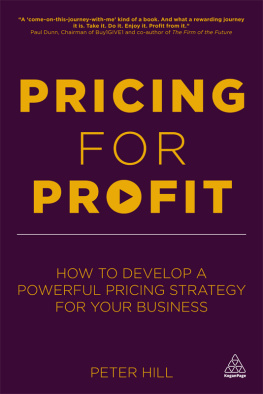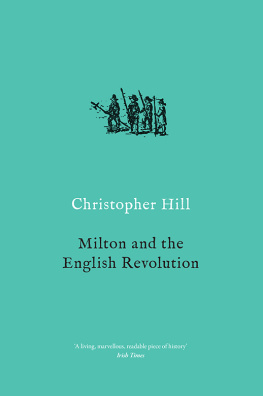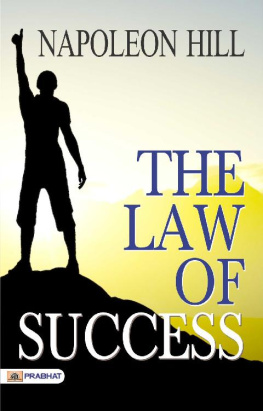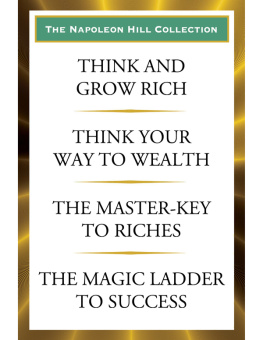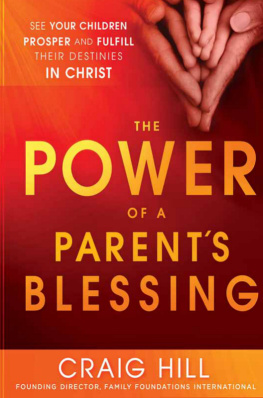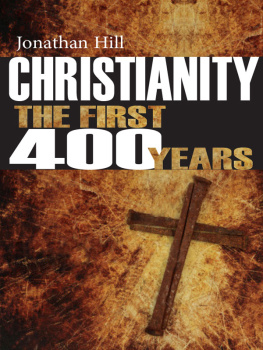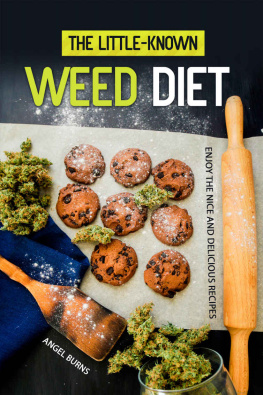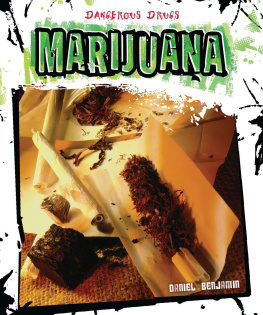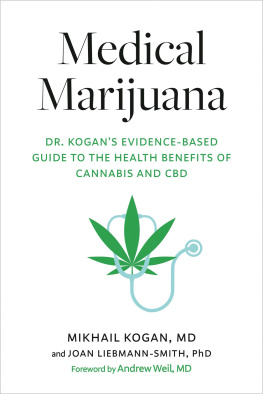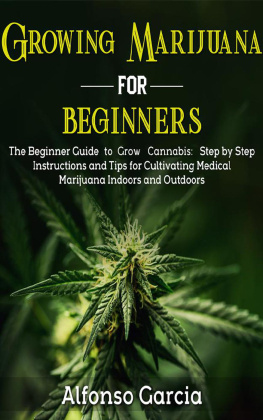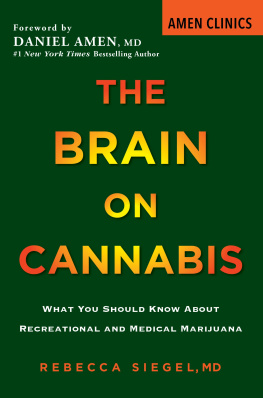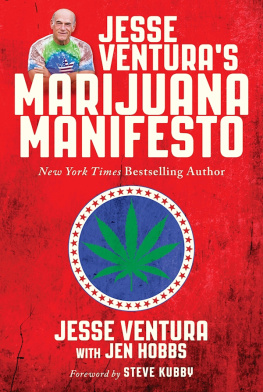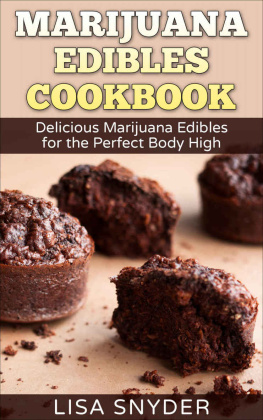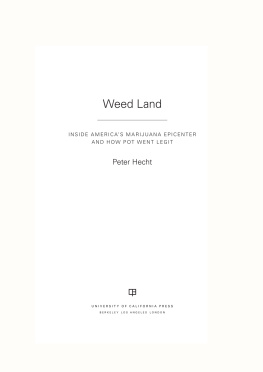MARIJUANA
Praise for Marijuana: The Unbiased Truth about the Worlds Most Popular Weed
Its delightful to see such a thorough, accessible review of such a diverse literature, even from an accomplished author who doesnt view the research the way that I do. It reminds us that reasonable people can differ and still stay reasonable. Check out this text for the latest on this controversial topic.
MITCH EARLEYWINE, PHD, Professor and Director of Clinical Training, University at Albany, SUNY, Author of Understanding Marijuana (Oxford University Press), Chair of the Executive Board of NORML (National Organization for the Reform of Marijuana Laws)
The risks of marijuana use are widely debated and disagreed aboutfrom questions of addiction and withdrawal, to effectiveness in treating various medical problems, to degrees of harmfulness and lasting deleterious changes....What has been missing is a balanced approach to all of these issuesan approach present in this volume by Dr. Kevin P. Hill. The book covers a wide range of topics in a thoughtful and comprehensive manner. Both pro- and anti-marijuana individuals will find material that agrees with their positionsand challenges them.... It can be usefully read and consulted by health professionals, policy makers, law enforcement, parents, teachers, and students.
HERBERT D. KLEBER, MD, Director, Division on Substance Abuse, New York State Psychiatric Institute
Bravo to Dr. Hill for taking on the task of explaining in detail the scientific and clinical information related to the controversial aspects of marijuana use, addiction, and legalization. He brings his personal, professional, and scientific knowledge to the table in an effort to provide readers with much more than a cursory overview of the issues. Novice readers will come away with broad knowledge of the field, and those who have already formed opinions will be forced to rethink their positions.
ALAN J. BUDNEY, PHD, professor of psychiatry at the Geisel School of Medicine, Dartmouth


Hazelden Publishing
Center City, Minnesota 55012
hazelden.org/bookstore
2015 by Kevin P. Hill
All rights reserved. Published 2015
No part of this publication, either print or electronic, may be reproduced in any form or by any means without the express written permission of the publisher. Failure to comply with these terms may expose you to legal action and damages for copyright infringement.
Library of Congress Cataloging-in-Publication Data
Hill, Kevin P., 1973-
Marijuana : the unbiased truth about the worlds most popular weed / Kevin P. Hill.
1 online resource.
Includes bibliographical references.
Description based on print version record and CIP data provided by publisher; resource not viewed.
ISBN 978-1-61649-570-1 (epub)
1. Marijuana. 2. Marijuana abuse. 3. Marijuana--Therapeutic use. 4. Marijuana--Law and legislation. I. Title.
HV5822.M3
362.29'5--dc23
2015004669
Editors notes
The names, details, and circumstances may have been changed to protect the privacy of those mentioned in this publication.
This publication is not intended as a substitute for the advice of health care professionals.
Alcoholics Anonymous, AA, and the Big Book are registered trademarks of Alcoholics Anonymous World Services, Inc.
19 18 17 16 15 1 2 3 4 5 6
Developmental editor: Sid Farrar
Production editor: Heather Silsbee
Cover design by Kathi Dunn, Dunn + Associates
Interior design and typesetting by Percolator
To my wife, Debbie, and my daughters, Hannah and Sophie
CONTENTS
LIST OF FIGURES
Marijuana has been in the news constantly as American states and countries around the world have been asked to make important decisions about medical marijuana and the legalization of marijuana for recreational use. These decisions have led to heated debates about the benefits and risks of marijuana use. People often have strong opinions about marijuana and, at times, these opinions obscure the scientific realities of the drug. This book is designed to help separate fact from opinion in the hopes that a better understanding of marijuana will allow people to make educated choices about marijuana use, medical marijuana, and legalization. The book also aims to provide a framework for recognizing marijuana addiction and tips for what you can do to help.
My goal is to be as objective as possible when covering the complex questions surrounding this drug. However, Im sure that my personal experiences will still come through in my writing. Addiction is a part of all my days. I am an addiction psychiatrist at McLean Hospital and assistant professor of psychiatry at Harvard Medical School. My work focuses on three areas: clinical work, clinical research, and education. Every day of the week I see patients in several clinical arenas:
I am the director of the Substance Abuse Consultation Service and see patients regularly in that role.
I teach and supervise psychiatry resident physicians, where we see patients with addiction problems in various specialty units of the hospital.
I also see patients while leading three clinical trials at McLean that aim to develop effective treatments for addiction; I see the rest of my patients as a part of my small private practice.
Patients with addictions are referred to me from a variety of sources, including colleagues from all over and organizations that I consult with, such as the NFL (National Football League) and the FAA (Federal Aviation Administration). I help my patients battle their addictions so that they can function in the other important areas of their lives, such as work, school, and relationships.
But it is not only my experience as an MD that has helped me understand just how damaging alcohol and other drugs can be. My strong family history of addiction forced me think about this disease and its ramifications at a young age. My grandfather lived four houses down the block from us in Rochester, New York, and his drinking progressed after the death of my grandmother. My brothers and I loved and respected my grandfather, and we liked to go to his house each day to see what he was up to. There were days when my mother did not let us go thereI remember wondering why we couldnt go, and I then recall connecting this to the unusual number of large empty Chablis bottles that lined his curb every Wednesday for the next days garbage collection.
Seeing a bright, accomplished person drinking every day to the detriment of other areas of his life had a profound impact on me, one that stuck with me as I became involved in addiction research as an undergraduate at Skidmore College. I needed to understand how addiction happened and how to control it. I made the challenge of finding treatments for addiction my lifes work and I have been at it ever since, working with thousands of patients.
While there has been a lot of progress in understanding the causes, progression, and treatment of addiction, especially over the past twenty years, I am constantly reminded how far we still have to go. My patients remind me of this, but an incident with a family member is even more compelling for me personally. I live with the memory of sitting helplessly at my desk in my Belmont, Massachusetts, office upon learning that my uncle, who suffered from alcoholism and depression, committed suicide by jumping off a thirteen-story building. Although I had been in touch with those treating my uncle, and although I know that both alcoholism and depression are very difficult diseases to treat, I still feel as if I let my uncle and my family down. This feeling has motivated me to push even harder in my work to treat addiction.
Next page

